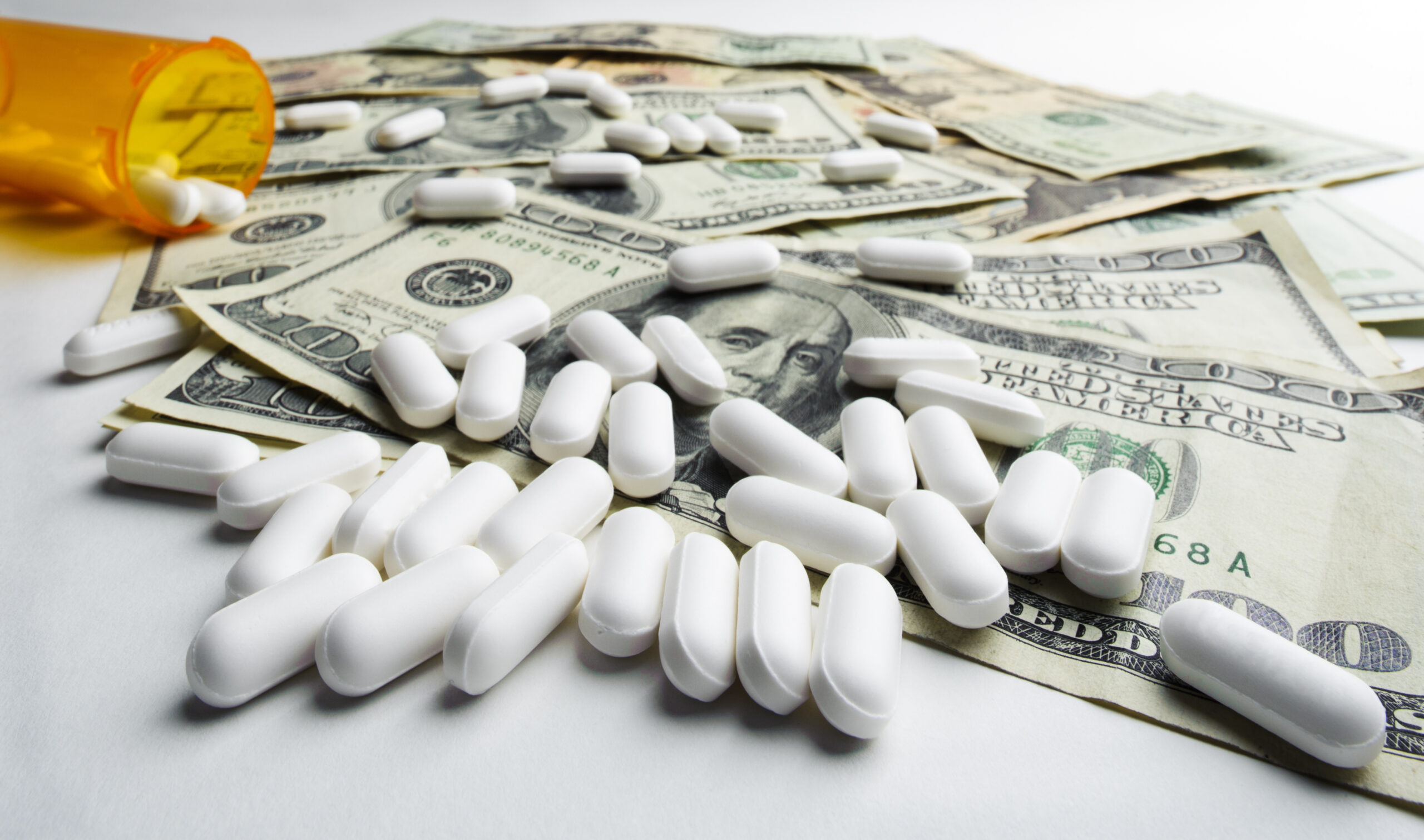© 2024 CSRXP- All Rights Reserved

BIG PHARMA EARNINGS WATCH: BRISTOL-MYERS SQUIBB AND SANOFI
Oct 31, 2019
Good Times Rolling for Brand Name Drug Makers, Two More Top Earnings Forecasts After Increasing Prices
Two more brand name giants – Bristol-Myers Squibb and Sanofi – topped earnings expectations while continuing to hike prices on vulnerable patients. The pair keep a trend alive that’s been consistent for all nine of the world’s largest pharmaceutical manufacturers who have reported earnings so far this quarter.
Bristol-Myers Squibb
- Bristol-Myers Squib reported $6 billion in revenue, beating analysts’ expectations.
- Cancer drug Opdivo raked in $1.817 for the company.
- The brand name giant has beat revenue estimates three times over the past year.
- Bristol-Myers Squib has raised its full-year adjusted earnings forecast.
Sanofi
- Sanofi beat earnings expectations this quarter and reported $10.54 billion in net sales.
- Strong growth this quarter was driven by eczema drug Dupixent.
Bristol-Myers Squib’s and Sanofi’s high earnings come after both companies participated in a series of price hikes earlier this year, despite the mounting crisis of affordability for patients across the country.
Bristol-Myers Squibb
- Bristol-Myers Squibb rang in 2019 with a round of price hikes topping out at six percent.
- A report found the company raised prices on two of its best-selling drugs, Coumadin and Sustiva, 163 times and had the most price hikes per drug (81.5) of any Big Pharma giant from 2015 to 2019.
- Bristol-Myers Squibb is also close to acquiring drug manufacturer Celgene in a $74 billion deal. If successful, it would be the largest pharmaceutical industry merger ever. Celgene has come under fire for particularly egregious price-gouging of its drugs, including Revlimid, a medication used to treat multiple myeloma. Here’s what happened on the day of the merger announcement:
-
- On The Same Day Bristol-Myers Squibb Announced Its Intention To Acquire Celgene, “Which Has Routinely Increased The Prices Of Its Top-Selling Drugs,” Celgene Hiked The Price Of The Dose Of Cancer Drug “Revlimid By 3.5 Percent To $719.82,” Compared With “$247.28 At The End Of 2007.” “On the same day Celgene Corp. was announcing that it would be acquired by Bristol-Myers Squibb Co. in the biggest pharma deal ever, the company was also raising the price of its blockbuster cancer drug. The Summit, New Jersey-based biotechnology company, which has routinely increased the prices of its top-selling drugs, boosted the price of a 10-milligram dose of Revlimid by 3.5 percent to $719.82 effective Jan. 3, according to price data compiled by Bloomberg Intelligence and First Databank. Cancer patients need many doses of Revlimid a year, and the overall cost can approach $200,000. The same dose cost $247.28 at the end of 2007.” (Rebecca Spalding, “Celgene Boosted The Price Of Its Top Cancer Drug On The Same Day Of Mega-Deal,” Bloomberg, 1/4/19)
-
- Lawmakers Have Raised Concerns The Deal Would “Stifle Competition, Particularly In Cancer, Causing Drug Prices To Rise And Hurting Consumers.” (Arlene Weintraub, “Congressmen To Regulators: BMS-Celgene Merger Will Stifle Competition And Raise Drug Prices,” FiercePharma, 1/15/19)
-
- In Addition To “Constructing An Almost Impenetrable Fortress Of Patents And Grants Of Market Exclusivity Around Revlimid,” Celgene Hiked Revlimid’s Price By Thousands Of Dollars A Month. “When Celgene Corp. first started marketing the drug Revlimid to treat multiple myeloma in 2006, the price was $6,195 for 21 capsules, a month’s supply. By the time David Mitchell started taking Revlimid in November 2010, Celgene had bumped the price up to about $8,000 a month. When he took his last month’s worth of pills in April 2016, the sticker price had reached $10,691. By last March, the list price had reached $16,691 …. Celgene has kept generic competition at bay by constructing an almost impenetrable fortress of patents and grants of market exclusivity around Revlimid, and its sister drug Thalomid, while also taking steps to ensure that generic competitors can’t get their hands on enough of the drugs to develop viable alternatives.” (Alison Kodjak, “How A Drugmaker Gamed The System To Keep Generic Competition Away,” NPR, 5/17/18)
-
- Patents And Exclusivity Designations On Revlimid Will Impede Generic Competitors’ Market Entry Until At Least 2022. “When Bristol-Myers Squibb picked up Celgene in one of biopharma’s biggest deals ever last month, investors tagged one big risk: Celgene’s megablockbuster Revlimid faced patent challenges that could take a big bite out of sales … The patent office’s decision should position Celgene and BMS to strike a favorable settlement with Dr. Reddy’s Laboratories, Credit Suisse Analyst Vamil Divan figures. Celgene has already settled with Natco Pharma in a deal that allows a limited generic launch in March 2022, he pointed out.” (Eric Sagonowsky, “BMS Can Breathe Easier Now: Celgene’s Revlimid Has Escaped A Big Patent Challenge,” FiercePharma, 2/12/19)
Sanofi
- Sanofi has raised prices 14 times this year, including on insulin drug Lantus. In January, the company jacked up the price of insulin between 4.4 and 5.2 percent. And in July, Sanofi was also among the Big Pharma giants that announced new price hikes.
- Sanofi increased list prices on almost half of its prescription drugs last year – 35 out of 76 – by an average of 4.6 percent.
- Dupixent was one of the primary sales drivers for the company in Q3. Last year, Sanofi raised the price of Dupixent by three percent.
Bristol-Myers Squibb and Sanofi join drug makers GlaxoSmithKline, Amgen, Pfizer, Merck, AstraZeneca, Eli Lilly, Johnson & Johnson, Roche and Novartis, in surpassing earnings expectations this quarter after hiking prices. Stay tune tomorrow to see if AbbVie completes the sweep.
###
